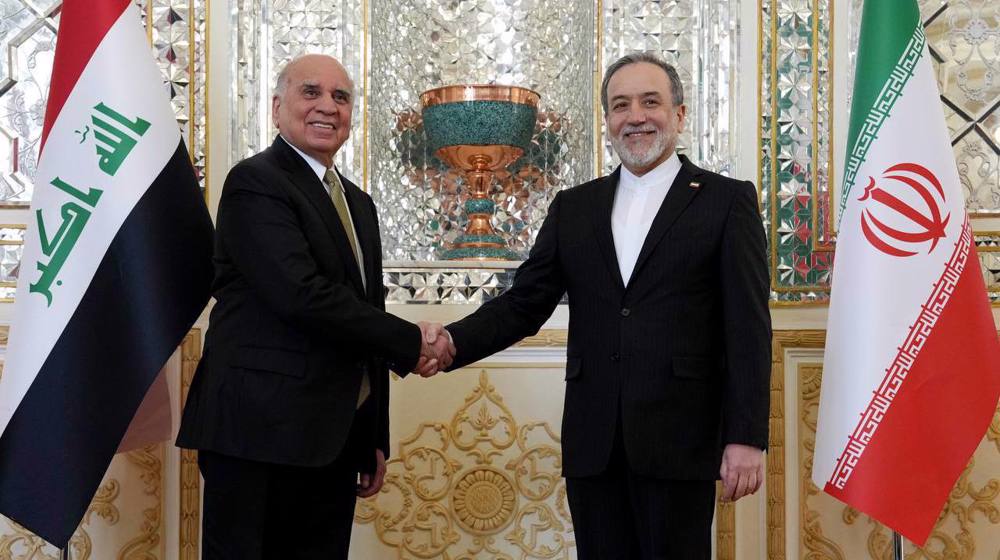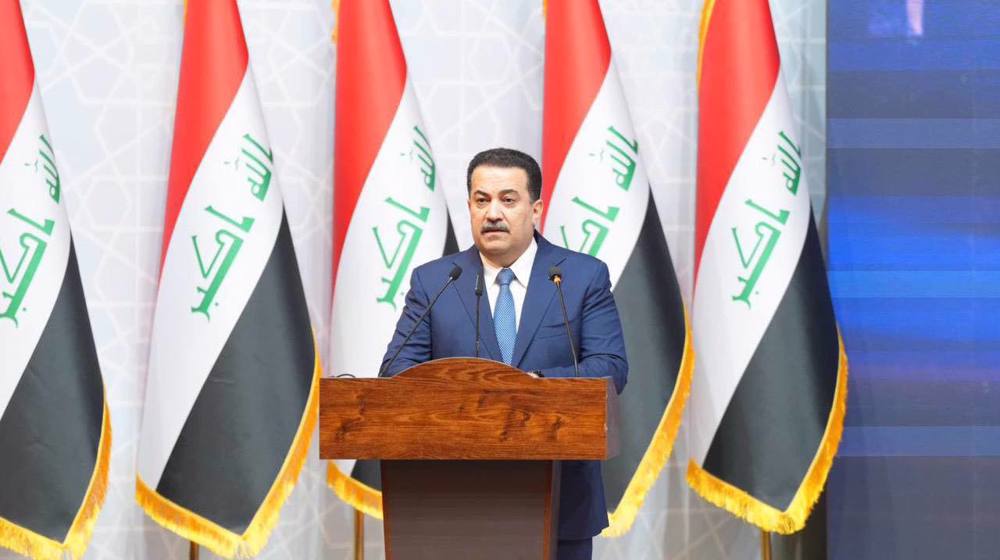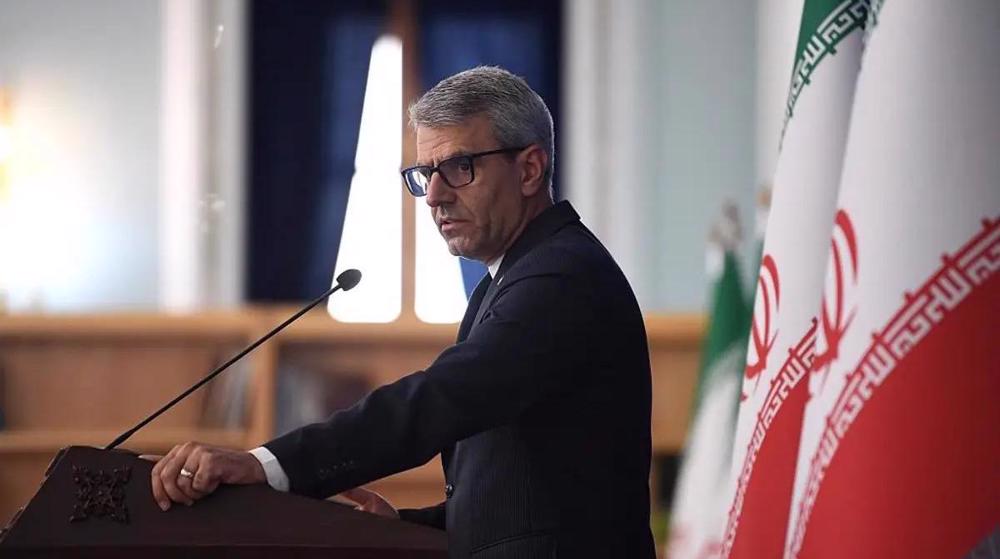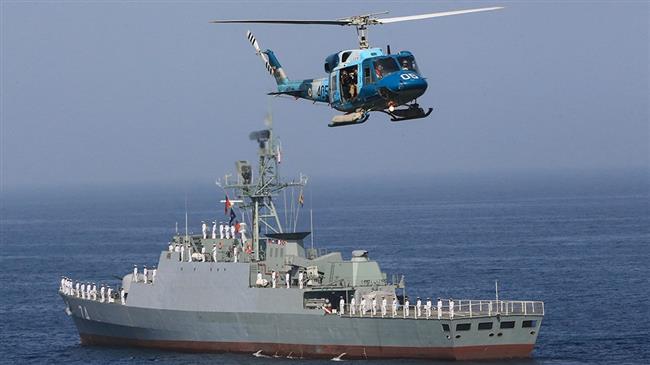US military presence brings nothing but insecurity to Persian Gulf: Iranian experts
Iranian experts say the US military buildup has brought nothing but instability and insecurity to the Persian Gulf region, supporting Tehran’s initiative for collective regional cooperation as the sole way to ensure safety in the strategic waters.
Hossein Kanani Moghadam, secretary of the International anti-Zionism Association, told Press TV’s Iran Today program that foreign intervention does not contribute to regional security.
“Cooperation between neighboring countries always helps increase security. The presence of foreign forces does not help much in this regard. It is not hidden to anyone that these foreign countries send forces only because they want to gain some benefits and take the control of the natural resources there,” he said.
He also supported Iran’s call for regional countries to jointly work to maintain security in the Persian Gulf.
“Iran has repeatedly suggested that the Arab states of the Persian Gulf should join hands and shoulder responsibility for the security of the Persian Gulf and do not allow foreigners take over. Unfortunately, however, they have let countries like the US to build military bases all over their lands and use their air space under the pretext of security, which have brought nothing but tensions and insecurity in the region,” Kanani Moghadam said.
He further emphasized that the US — which has already suffered defeats in its plots for Syria and Iraq — is currently not after military occupation of other countries but rather wants obedient self-proclaimed governments.
“Since the Munich Security Conference in 2002, the US’s strategy has been to pursue hybrid warfare. In such warfare, the war is not limited to the military forces anymore and other types of wars come to help defeat the enemy such as information war, economic war, political war, attempts to provoke the protesters against a government, attempts to create terrorist groups, and the list goes on. The US government seems to have lost interest in military intervention,” he said.
‘Arab states should trust Iran, not US’
International relations expert Diako Hosseini, in turn, said that regional countries should realize that they cannot trust the West, especially the US, for their own security.
“The Arab states to the south of the Persian Gulf need to raise awareness of the fact that Iran is not a threat but an important element for security in the region. I think the problem is that these Arab countries suffer lack of political wisdom badly. Is it really hard to see that the US has brought tensions, war and insecurity in Iraq, Syria, and Afghanistan and anywhere it has set foot so far? You don’t have to be a genius to understand that the security of your neighbors bring security for you,” he added.
‘Israel cannot join PG coalition’
Meanwhile, Eurasia expert Bahram Amirahmadian cast doubt on Israel’s ability to join a US-led naval mission purportedly aimed at protecting shipping lanes in the Persian Gulf.
“Israel is not even capable of properly managing the lands it has occupied such as the Golan Heights, the West Bank or Gaza. Now, how can Israel — while being surrounded by countries which are either allied or friends with Iran — join the US’s coalition in the Persian Gulf? Hezbollah has several times proved that Israel is too fragile and weak,” he said.
Amirahmadian also stressed Iran’s right to stop Israel in the Strait of Hormuz.
“According to the international convention on maritime law, which identifies the right of the ships to pass the Strait of Hormuz safely, Iran can any time claim that ‘Israel is our enemy and intends to use the Strait of Hormuz to attack us.’ Iran is allowed to stop Israel based on this claim,” he said. “As a result, Israel can in no way join this so called coalition or enter the Persian Gulf. At best, it can only give information aid.”
The United States has been trying to persuade its allies into joining an international coalition with the declared aim of providing “security” for merchant shipping in the Strait of Hormuz — through which about a fifth of all oil consumed globally passes —and other strategic Middle Eastern shipping lanes.
Washington has accused Iran of having a role in a series of attacks on oil tankers in the Strait of Hormuz and the Sea of Oman, a claim Tehran has strongly rejected. Tehran has warned that such sabotage operations may be part of a general ploy to target Iran amid increasing regional tensions.
‘US spreads Iranophobia to sell Arabs more arms’
Iranian lawmaker Mohammad J. Jamali also said the US is spreading Iranophobia in a bid to sell more weapons and get Arab states' permission to build military bases on their soil.
“In addition, they (the Americans) want to take control of the huge oil reserves in these countries and this way control the oil price and oil market according to their will. This is while the Americans have decided to reduce their presence in this region and instead put the UK and some other EU countries in charge of the affairs on their behalf,” he said.
US anti-Iran threats ‘bogus’
International affairs analyst Abdollah Moradi pointed out that the US’s military threats against Iran are "bogus" as Tehran is capable enough to confront Washington.
Since escalating its sanctions, he added, the US has been threatening Iran with military action in an attempt to harm its economy.
“Ill-thought moves such as putting Iran’s IRGC (Islamic Revolution Guards Coprs) on the list of ‘terrorist groups’ and sending warships to the Persian Gulf were to make their threats more believable. But when Iran shot down their drone, the Americans came to the understanding that we (Iranians) have both the capability and the courage to confront the US militarily,” he said.
VIDEO | Press TV's news headlines
VIDEO | Istanbul demonstrators voice support for Iran amid US tensions
VIDEO | Israeli settlers attack Palestinian Bedouin community, injure 13
Palestinian Ambassador’s residence in Tehran attacked amid terror wave
Syria's HTS regime agrees to truce with SDF after its troops advance
EU mulls over $100bn in US retaliatory tariffs over Greenland
VIDEO | Trump's presence sparks major protests at Davos Forum
President Pezeshkian vows historical Iran-Iraq relations will remain stable
















 This makes it easy to access the Press TV website
This makes it easy to access the Press TV website